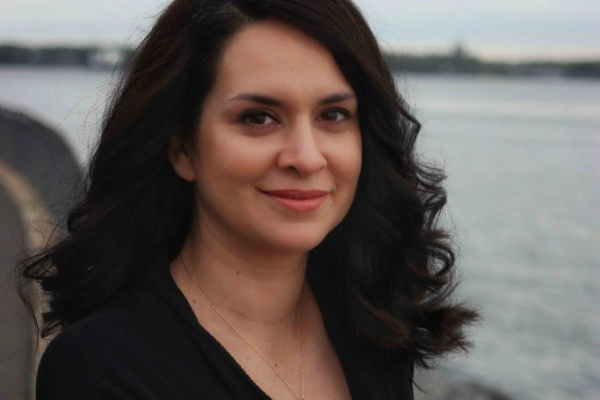Most writers could easily spend 99 words waxing poetic about the sky or ocean. However, crafting an entire story, complete with character, conflict, and resolution, in 99 words is no small feat. That’s why it’s important to choose a story idea in which, as YA author and Flash Fiction Guest Judge Janelle Milanes says, “you can convey the stakes as quickly as possible. Stories that need more exposition and explanation might be better suited to a different genre of writing.”
Read on to learn more about Janelle’s background and work and for more great tips to polish your Flash Fiction entry!

You’re a YA author and an educator! What was your journey to these career paths, and how do they inform one another?
After graduating from college as an English major, all I knew for certain was that I wanted a career that involved books in some way. I initially worked in a publishing house as an associate, where I bounced around the marketing, editorial, and publicity departments. It was interesting to see how the sausage gets made, but I realized the corporate aspect of the book industry was ultimately not for me. From there, I worked as an elementary school librarian, which quickly turned into a job teaching.
I was so inspired by the books I read with my students that I itched to write something myself. So, I did—between classes, during my subway commute, and in coffee shops on the weekends. I’ve looked at books from almost every angle possible, which has been incredibly beneficial. I feel I understand the YA audience on a personal level after my teaching experience, and my experience in writing allows me to guide my students in a more meaningful way. I can also empathize with them more, because I understand firsthand many of the difficulties they will encounter in their writing!
You’re also an instructor with Write the World Workshops. What has your experience been like in conducting zoom/online writing workshops with young writers?
Facilitating the Write the World workshops has been an incredible experience so far. I have really missed teaching and interacting with students, and it’s been nice to connect with young writers again. The virtual aspect has been interesting. I was somewhat prepared for the limitations of teaching virtually, but I wasn’t prepared for the benefits. For writers, it is the opportunity to express yourself primarily in written form if that is how you feel most comfortable. I think with virtual learning you are able to accommodate those who tend to be slightly more introverted. Students can chat me privately with questions or concerns. At the same time, there is still opportunity for discussion with those who feel comfortable speaking in front of a group. I have read some inspiring pieces from these young writers, and, even in only a week, the improvement in their writing skills has been substantial thanks to the intensive nature of the workshops.
Flash Fiction is both freeing (“only 99 words!”), and daunting (“how do I tell a full story in only 99 words?”). What’s your advice for making the most of the genre’s limitations and opportunities?
Flash Fiction is a way to cut right to the heart of a story. It is an opportunity, as a writer, to be decisive and to revise your work with purpose. My advice to those writing is to begin with abandon. Writing is an experiment. Get your story idea down on paper and flesh it out with all the narrative elements you would find in any typical piece of writing. For those who find the word count daunting, you do not need to restrict your writing off the bat. After you have finished telling the story the way you want to tell it, then you can examine where the primary conflict lies. Take the time to condense your piece and to cut details that do not drive that conflict. Save all of your work in case you want to expand it into something larger in the future!
What advice do you have for students on choosing a subject/story that would make a good match for Flash Fiction?
Even with a short word count, your story should still have tension. There should be a conflict present, whether internally or externally. The writer’s job is to make that conflict clear to the reader in 99 words. When choosing a story idea, choose one in which you can convey the stakes as quickly as possible. Stories that need more exposition and explanation might then be better suited to a different genre of writing.
What YA books have you read recently that you would recommend?
I am in the middle of reading One Last Stop by Casey McQuiston, and I’m finding it an interesting blend of genres so far. I don’t read a lot of magical realism, but I’m loving McQuiston’s writing style—it’s a solid combination of humor and heart. The story is about a girl named August who develops a crush on a girl, Jane, whom she meets on the subway. The twist is that Jane is a girl from the 70s who is suspended in time, and August must help save her.
Other than that, I have found myself reading some old favorites in the past few months. I’m a sucker for a good love story, particularly one with a slow burn and a sense of humor. The ones I return to over and over for a strong contemporary romance are Tell Me Three Things by Julie Buxbaum and Anna and the French Kiss by Stephanie Perkins.





